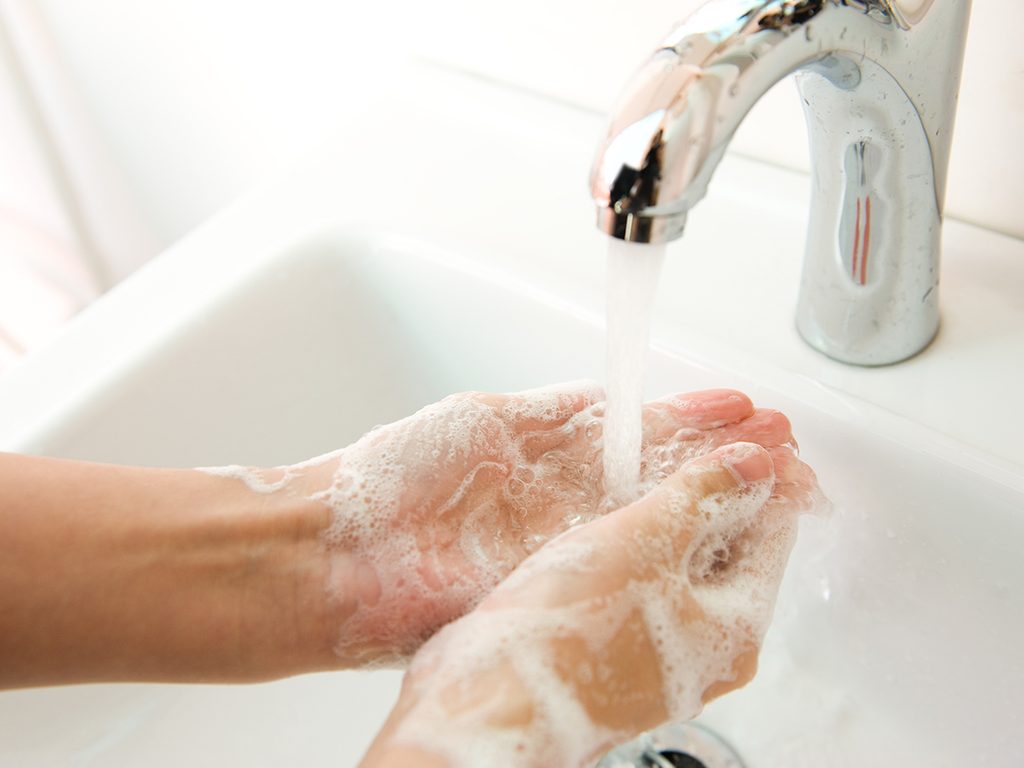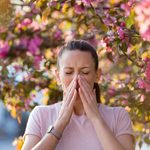What You Need to Know About Coronavirus in Canada, According to a Germ Scientist

We ask Canadian germ expert Jason Tetro, author of The Germ Files, to weigh in on the risk of coronavirus in Canada, and the most effective strategies to protect yourself from similar pathogens.
Published Feb. 14, 2020
Reader’s Digest Canada: The new coronavirus outbreak has put germs top of mind. How can we avoid exposing ourselves?
Jason Tetro: People want to hear there’s something they can do to take extra precaution right now, but the way you can protect yourself from coronavirus is the same way you protect yourself from regular flu bugs and other pathogens: Wash your hands frequently and avoid contact with surfaces that are touched by a lot of people, such as door knobs, handles and buttons.
In your own home, you can clean and disinfect surfaces touched often, which are generally in the bathroom and the kitchen. Understandably, there is a lot of attention being paid to coronavirus—technically called COVID-19—at the moment, but the the regular flu still poses a comparable threat to Canadians.
How is the coronavirus different from the regular flu?
Coronaviruses are a category of respiratory viruses that infect a number of species including humans. They come in various strains or strengths—some as harmless as the common cold, a couple that can cause a strong pneumonia and then some that are real killers. In 2003, SARS was the first coronavirus outbreak that caused a serious public health threat. Then there was MERS (Middle East Respiratory Syndrome) in 2012. And now we have COVID-19.
Why have these more dangerous coronavirus strains only cropped up in the last 20 years? Humans have been getting colds for thousands of years.
That’s something we don’t know. We do know that these viruses are zoonotic, meaning they’re transmitted from animals to humans. Initially, the theory was that transmission of COVID-19 required close body contact—like kissing. Now we believe it can be caught by droplets from a few feet away. It’s possible that it can travel through air vents—we’ll know more about that when we see who gets sick on board the quarantined cruise ships.
At this point there’s no reason to think this virus is like Ebola or measles, which can stay in the air for hours even when the person who shed it is long gone.
A lot of people are wearing face masks. Is that a smart precaution?
I don’t think it’s necessary—not unless there’s an uncontrolled spread of the virus in your community. Also, for any kind of virus, face masks don’t provide any protection that you can’t get from a scarf and making sure people around you sneeze into their sleeves.
What about hand sanitizer? Should everyone be stocking up?
Hand sanitizer is good if you don’t have access to a sink, but otherwise, soap and water is the best option. One tip is that a lot of people don’t wash their hands for long enough. We say you should scrub for about 20 seconds, or the length of singing “Happy Birthday” twice. That’s going to get rid of any pathogens, which are the germs that get us sick.
As opposed to the germs that don’t?
Pathogens only make up about one-tenth of one per cent of germs or bacteria that humans are exposed to. The rest are either benign or actually helpful.
How can germs be helpful?
Our skin has a barrier made up of various microbes that protect us from irritation and infection. That’s not something you want to disrupt by excessive cleaning. There’s also gut bacteria that helps with our digestion.
Overall, exposure to a diverse array of germs, particularly at a young age, is beneficial for developing a strong immune system and good health in general. An allergy, for instance, is the body mistaking a friendly germ for a dangerous one because it’s not familiar with it. More kids have allergies today than ever because they’re raised in urban environments where there isn’t a lot of germ diversity.
So parents should let their kids spend more time rolling around in the dirt?
Sure! I always say let your kids eat dirt unless it’s in the dog park.
Find out more diseases you can prevent simply by washing your hands.



